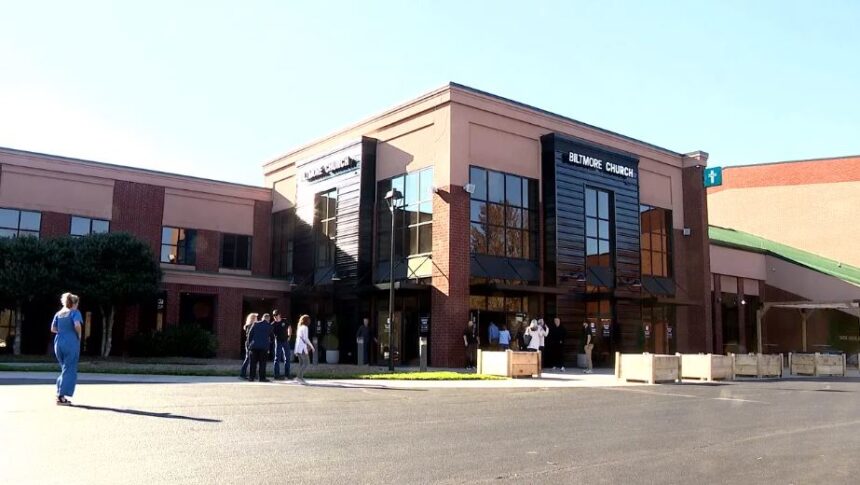Churches anticipate spark in Easter Sunday attendance amid national trend of decline

As the U.S. continues on a national decline in church-goers in the Christian faith
By Neydja Petithomme
Click here for updates on this story
ASHEVILLE, North Carolina (WLOS) — Easter Sunday is fast approaching, and many churches across the country are grappling with a concerning trend, which is a decline in attendance.
According to recent polls, only 9% of people attend church almost every week, followed by 11% who attend church once a month and leaving 31% of people deciding to never go to church.
Jason Gaston, executive pastor of Next Gen Ministries & Residency at Biltmore Church, said Friday, March 29, that heading into Easter Sunday, they are seeing the opposite, already seeing a tremendous increase in people coming in.
“Over the last few years, specifically even the last 12 to 14 months, we’ve actually seen more people walk through the doors,” he said.
For many churches across the country, Easter Sunday will be the opportunity for them to try to find ways to reconnect and turn this downward trend around, but for the organizers and leaders at Biltmore Church, they’ve been ahead of the game.
Gaston credits the increase with the focus of building relationships within the community or meeting people where they are as well as technology.
“Technology is meeting people where they are,” he explained. “Prime example of that — many churches, ours included, were able to offer Easter services online, just through the platform of technology. People could be riding down the road in their car on Easter vacation or their family vacation or spring break and able to pull it up.”
On Sunday, March 31, Biltmore Church will be offering 19 Easter services across seven different campuses.
Data suggests that on any given weekend, nearly 3 out of 10 American adults attend religious services, which is down from 42% in the last two decades.
Experts say attendance will likely continue to decline in the future, given younger Americans’ weaker attachment to a religion — and for many local churches across the country, that’s a trend they are hoping to change.
“I think that there is a generation growing up that’s asking a lot of hard questions,” Gaston said.
Please note: This content carries a strict local market embargo. If you share the same market as the contributor of this article, you may not use it on any platform.